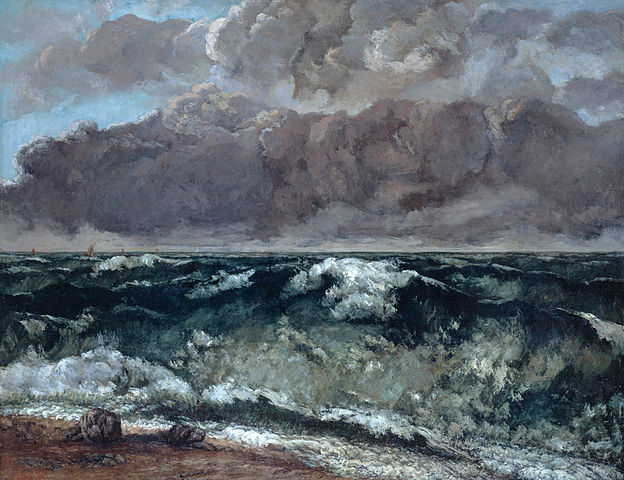Spiritual Sunday
John Frederick Nims’s “Prayer” is an apophatic poem, which is to say, it strives to capture the immensity of God through negation: the poem lists things which cannot fill the vast emptiness we feel inside us. These include nature’s beauty, material treasure, and different forms of human love. “For we who are nothingness can nothing hold,” he declares.
The poet asks God to come like “an army marching the long day/And the next day and week and all that year,” as though we are besieged by an enemy and in desperate need to help. Or ratcheting up his analogies, the poet compares God to the moon, which moves the ocean tides. “Come like an ocean thundering to the moon,” the poet begs, “Drowning the sunken reef, mounting the shore.”
I wonder if this last request is a response to Matthew Arnold’s famous “Dover Beach,” where the poet laments that the sea of faith is receding from the world. Arnold writes,
The Sea of Faith
Was once, too, at the full, and round earth’s shore
Lay like the folds of a bright girdle furled.
But now I only hear
Its melancholy, long, withdrawing roar,
Retreating, to the breath
Of the night-wind, down the vast edges drear
And naked shingles of the world.
Nims’s prayer echoes some of the same desperation but recalls that, just as the tide ebbs, so does it also flow. Only something as large as the sea can fill the “ancient crater” he feels inside. Or in the words of one of my favorite hymns, “There’s a wideness in God’s mercy,/like the wideness of the sea.”
The hymn, however, is confident, and therefore gentle, in its declaration. Nims wants a more violent intervention, an inundation. The imagery has been intense: a king who senses his kingdom crumbling beneath him, a lover who awakes fearing his lover has abandoned him. Nims has translated St. John of the Cross’s Dark Night of the Soul and one sees him describing his own dark night here. Feeling isolated and alone, like stanzas seven and ten, the poet lifts up his prayer.
Prayer
By John Frederick Nims
We who are nothingness can never be filled:
Never by orchards on the blowing sea,
Nor the rich foam of wheat all summer sunned.
Our hollow is deeper far than treasure can fill:
Helmets of gold swim ringing in the wells
Of our desire as thimbles in the sea.
Love cannot fill us either: children’s love,
Nor the white care of mothers, nor the sweet
Concern of sister nor the effort of friends;
No dream-caress nor actual: the mixed breath,
Lips that fumble in dark and dizzily cling
Till all nerves tighten to the key of love.
The feasted man turns empty eyes about;
The king builds higher on a crumbling base,
His human mouth a weapon; his brain, maps.
The lover awakes in horror: he gropes out
For the known form, and even enfolding, fears
A bed by war or failing blood undone.
For we who are nothingness can nothing hold.
Only solution: come to us, conceiver,
You who are all things, held and holder, come to us,
Come like an army marching the long day
And the next day and week and all that year;
Come like an ocean thundering to the moon,
Drowning the sunken reef, mounting the shore.
Come, infinite answer to our infinite want.
Her ancient crater only the sea can fill.


